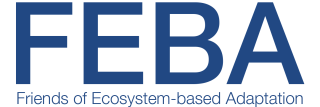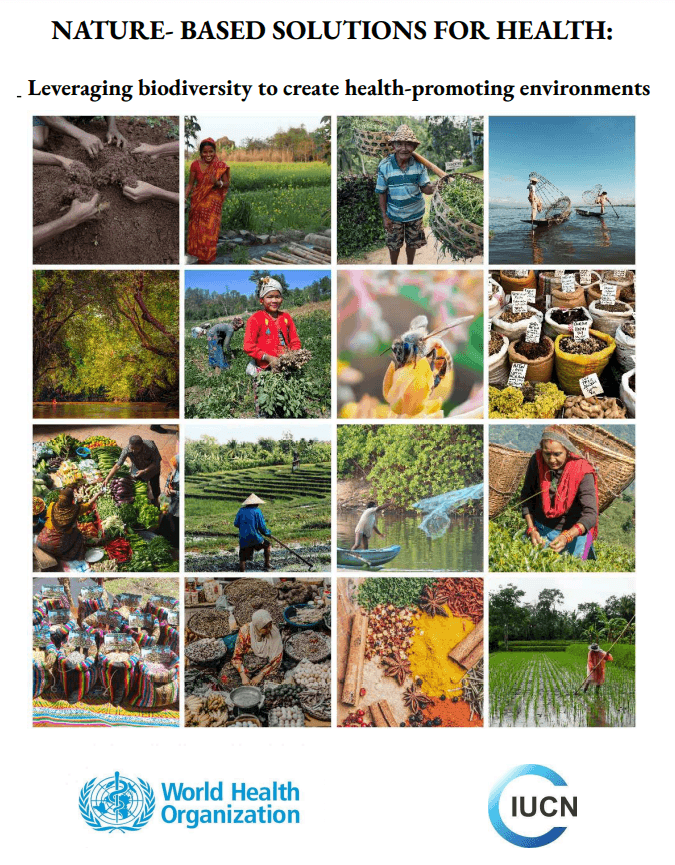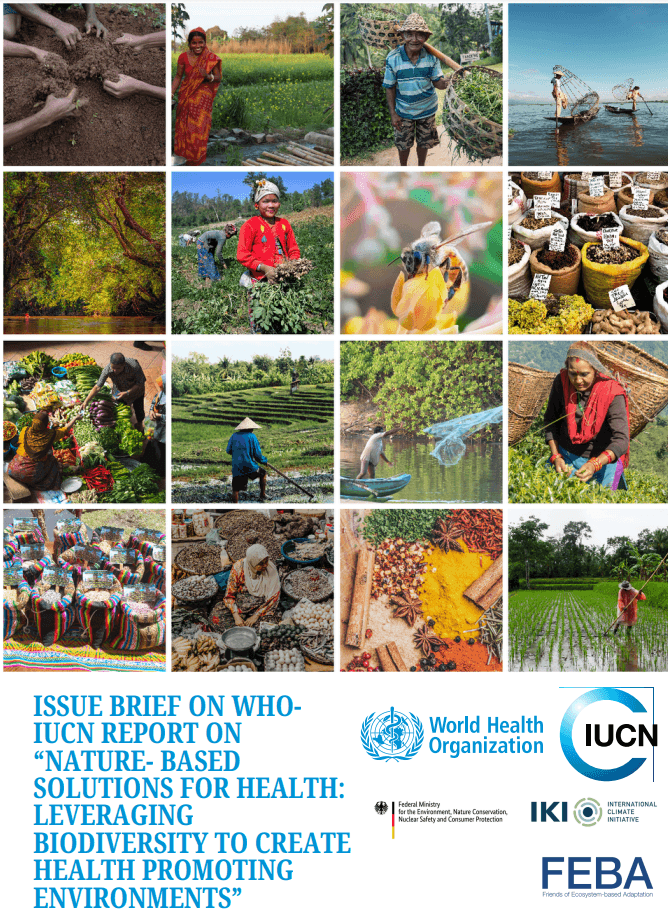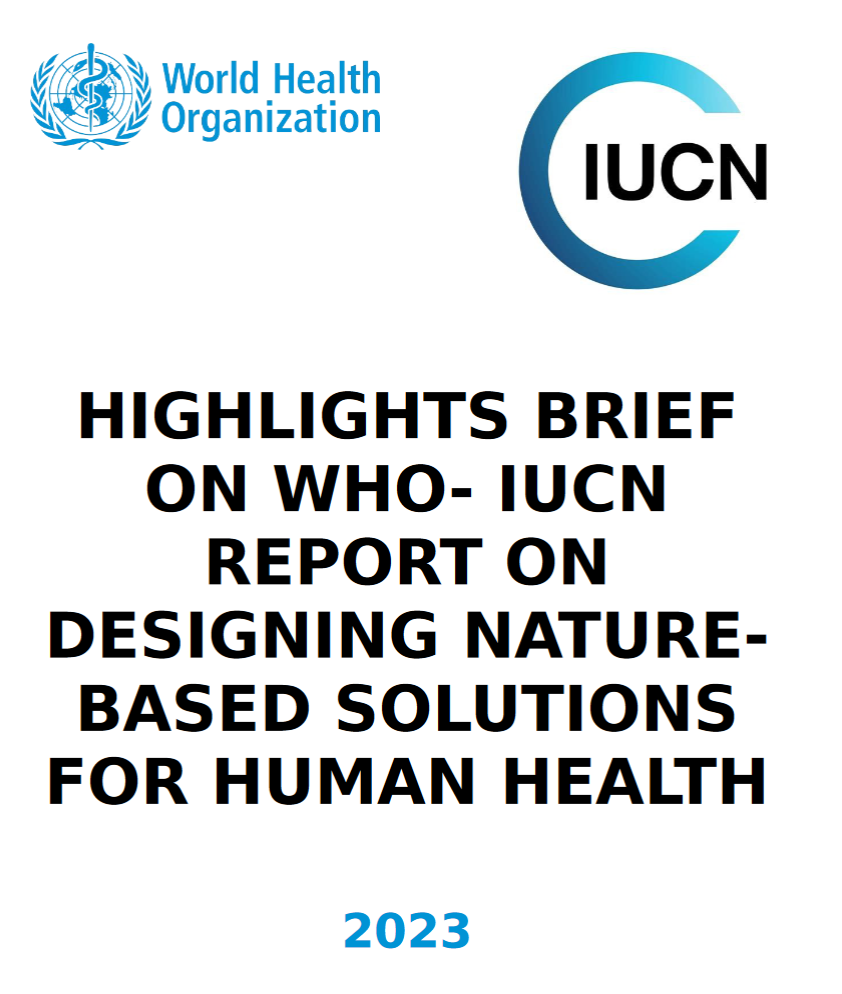Biodiversidad, clima, Una Salud y Soluciones Basadas en la Naturaleza
Presidido Por
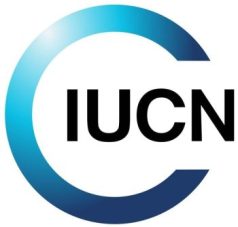

Bajo el paraguas de la red de Amigos de la AbE (FEBA), los principales expertos involucrados en la interfaz ciencia-política de la salud pública, la biodiversidad y el cambio climático colaborarán en una iniciativa innovadora liderada por la OMS y la UICN para ayudar a guiar a los tomadores de decisiones hacia un futuro más saludable, más verde y más sostenible mientras navegan por los desafíos de la era posterior al COVID-19.
El Organización Mundial de la Salud (OMS), a través de su Departamento de Medio Ambiente, Cambio Climático y Salud (ECH), la Unión internacional para la Conservación de la Naturaleza (UICN), y la Amigos de la Adaptación basada en los Ecosistemas La red FEBA está creando un nuevo grupo de trabajo de expertos (GTE) sobre biodiversidad, clima, Una Salud y Soluciones Basadas en la Naturaleza. Esta iniciativa se basa en el trabajo realizado por el Grupo de Enlace Interinstitucional sobre biodiversidad y salud, copresidido por la OMS y el Convenio sobre la Diversidad Biológica entre 2015 y 2020, y lo amplía.
El EWG elaborará orientación y herramientas para apoyar la puesta en práctica de los enfoques de Una Salud y las Soluciones Basadas en la Naturaleza mediante: (1) la identificación de cobeneficios y compensaciones para la salud humana y de los ecosistemas, (2) el fortalecimiento de la resiliencia social y ecológica y (3) el apoyo a una recuperación saludable, verde y justa del COVID-19.
Lea más sobre el lanzamiento del EWG aquí y aquí.
A continuación se enumeran los miembros actuales del Grupo de trabajo de expertos:
Diarmid Campbell-Lendrum (OMS), Marina Maiero (OMS), Maria Neira (OMS), Cristina Romanelli (OMS), Ali Raza Rizvi (UICN), Gregory Davies-Jones (UICN), Kevin Smith (UICN), Franck Berthe (Banco Mundial), Kobie Brand (ICLEI), Martin Breed (Universidad de Adelaida), Ingrid Coetzee (ICLEI), David Cooper (CDB), Denise Costa Coitinho Delmuè (suplente de UNSCN/ONU Nutrición), Francois Dias (WOAH), Christopher Golden (Escuela de Salud Pública de Harvard), Andy Haines (LSHTM), Irene Hoffman (FAO), Danny Hunter (Biodiversity International), Jonathan Jennings (HiH), Catherine Machalaba (TNC), Scott Newman (FAO), Stineke Oenema (UNSCN/ONU Nutrición), Hindou Oumarou Ibrahim (UNPFII), Unnikrishnan Payyappallimana (UNU IAS), Marianela Araya-Quesada (CBD), Doreen Robinson (PNUMA), Suneetha Subramanian (UNU IAS), Juan Vasquez (CITES), Mariam Wallet Aboubakrine (Ărramăt), Neil Vora (Conservation International), Chadia Wannous (WOAH), Cristina Zucca (PNUMA).
Productos de conocimiento
Soluciones basadas en la naturaleza para la salud: aprovechar la biodiversidad para crear entornos que promuevan la salud
Para apoyar el creciente esfuerzo mundial por integrar la salud en las políticas y prácticas de las SbN, el Informe de la UICN y la OMS sobre soluciones basadas en la naturaleza para la salud ofrece orientación basada en evidencia y recomendaciones prácticas para los encargados de la formulación de políticas, los profesionales y las partes interesadas. El informe hace hincapié en cómo las SbN pueden mejorar los resultados en materia de salud, contribuir a la conservación de la biodiversidad y, al mismo tiempo, mejorar las oportunidades de adaptación y mitigación del cambio climático. Se centra en cómo los enfoques basados en la naturaleza (como la restauración de los ecosistemas, la infraestructura verde y el uso sostenible de la tierra) pueden servir como estrategias preventivas y adaptativas para reducir los riesgos para la salud, mejorar el bienestar mental y físico y apoyar a las comunidades resilientes.
Tema en Breve en la QUE se Informe de la UICN en Nbs para la Salud, el Aprovechamiento de la Biodiversidad para Crear Salud la Promoción de Entornos
Este informe ofrece una serie de recomendaciones y ejemplos del mundo real como modelos prácticos para la ampliación de la NbS para beneficio de la gente y la naturaleza. NbS, combinado con holística marcos como Uno de Salud, proporcionan una base fundamental para la salvaguardia de los humanos, los animales, las plantas y la salud del ecosistema. Las autoridades deben colaborar con las diversas partes interesadas para aumentar las inversiones en NbS, fomentar el intercambio de conocimientos, y dar prioridad a la protección y el empoderamiento de las comunidades vulnerables. Este informe sirve como un trampolín para la acción, allanando el camino para un futuro en el que la salud de los ecosistemas y las personas sanas prosperar juntos.
Diseño de soluciones basadas en la naturaleza para la salud humana
Cada vez es más evidente la interconexión e interdependencia entre la salud humana y un medio ambiente sano. Un medio ambiente insalubre puede tener consecuencias negativas para la salud de los seres humanos y, dada esta relación fluida y simbiótica entre ambos, se debería fomentar la cooperación intersectorial y la eliminación de las barreras entre los sectores de la conservación y la salud pública para lograr ecosistemas y personas más saludables.
Si está interesado en unirse a este u otro grupo de trabajo de expertos, o iniciar un grupo de trabajo sobre otro tema, contáctenos.
